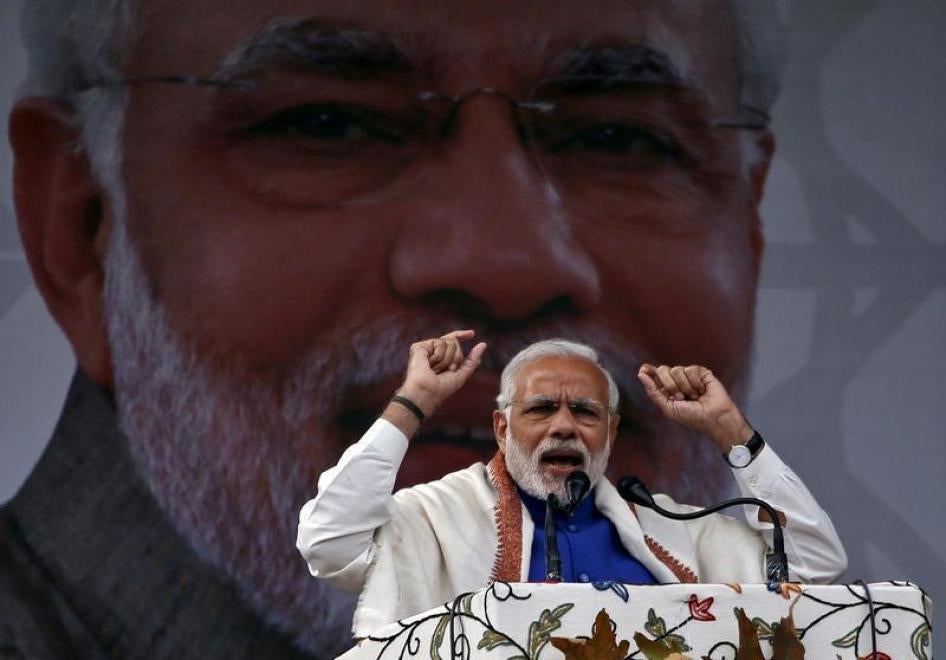It has not been the most glorious of times for human rights in British diplomacy. First, there were complaints over the effusive welcomes given to Chinese President Xi Jinping and Egyptian President Abdel Fattah al-Sisi in London. Now, some human rights groups are protesting the visit of Indian Prime Minister Narendra Modi: a huge “MODI NOT WELCOME” image was projected upon the Palace of Westminster.
After years of shunning him for his failure to end communal attacks on Muslims in 2002, when he was chief minister of Gujarat state, the United Kingdom restored direct engagement with Modi in 2012, when he emerged as the leading prime ministerial candidate. Modi’s Bharatiya Janata Party (BJP) decisively won the 2014 general elections.
Modi has embarked upon an ambitious effort to draw in foreign investment to bolster his promise of development. Unlike China or Egypt, India – as a long-standing democracy with a fiercely independent judiciary, assertive media, and noisy civil society – is a particularly attractive partner.
Yet, the Modi government has stumbled in its goal of achieving economic growth by diminishing precisely these positive values. Freedom of expression and association are facing increasing curbs at home.
Modi critics like Teesta Setalvad are under threat of arrest on trumped-up charges. Greenpeace India activist Priya Pillai was stopped from traveling to meet with British parliamentarians, an obstruction later reversed by the judiciary. Writers, artists, academics, film makers, and scientists are protesting the growing religious intolerance and silencing of dissent. Modi’s supporters, including his party leaders and members of cabinet, have openly expressed contempt for religious minorities and Dalits, contributing to the BJP’s recent defeat in Bihar state elections.
Modi’s defenders argue that, as prime minister of a federal government, he cannot be held responsible for these failures, because law and order is the responsibility of state governments. But that does not absolve him from failing to vociferously condemn hate campaigns by vigilante groups that support his party.
Even many economists and business leaders are worried. India’s central bank governor called for tolerance, saying intellectual freedom was critical to growth. Moody’s Analytics warned that Modi risked losing domestic and global credibility.
When Prime Minister David Cameron and Modi talk about trade and investments at Downing Street, they should also bring up uncomfortable topics. Modi should raise concerns over UK government plans to expand mass surveillance powers that would undermine privacy, and Cameron should raise concerns over the Indian government’s crackdown on dissent, the BJP’s tacit support for hate campaigns, and the failure to work toward protecting the rights of the marginalized.








